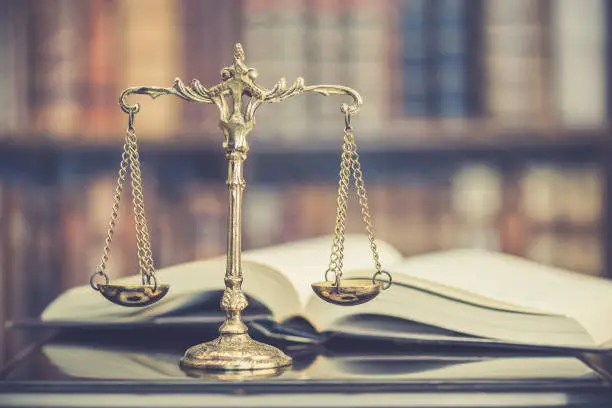
Reasons Why Hiring a Child Custody Attorney is Beneficial
October 22, 2023
Essential Habits of Highly Effective Law Students
October 22, 2023Being charged with a criminal offence is a daunting experience that can have lasting implications. Understanding your rights and the legal process is crucial at this juncture. Whether it’s a less serious offence or a grave criminal prosecution, knowing where to turn for help and support is essential. In the UK, if you find yourself at a police station in Wales or elsewhere, you have the right to free legal aid, ensuring equal access to legal representation.
The Crown Prosecution Service (CPS) and the criminal justice system play pivotal roles in prosecuting offenders. This blog aims to guide you through the intricacies of the legal landscape, shedding light on the options available and emphasizing the importance of seeking a criminal defence attorney.
Your Rights When Facing a Criminal Charge in the UK
If you are charged with a crime in the UK, you have a number of important rights. These rights are designed to protect you and ensure that you have a fair trial.
The right to remain silent
You have the right to remain silent when being questioned by the police. This means that you do not have to answer any questions that they ask you. If you do choose to answer questions, you should be aware that anything you say may be used as evidence against you in court.
The right to a fair trial
You have the right to a fair trial. This means that you have the right to be tried by an impartial judge or jury and that the prosecution must prove its case beyond a reasonable doubt. You also have the right to be represented by a solicitor or barrister in court.
The right to be represented by a solicitor
You have the right to be represented by a solicitor at all stages of the criminal justice process, from the moment you are arrested to the end of your trial. If you cannot afford to pay for a solicitor, you may be eligible for legal aid.
The right to know the charges against you
You have the right to know the charges against you as soon as possible after you are arrested. The police must tell you what you are being accused of and why they believe you committed the offence.
The right to bail
You have the right to bail unless there is a good reason to keep you in custody, such as if there is a risk that you will abscond or commit further offences. If you are granted bail, you may have to adhere to certain conditions, such as not contacting the victim or witnesses.
The right to a speedy trial
You have the right to a speedy trial. This means that your case should be heard in court without unreasonable delay. The length of time it takes for your case to come to court will depend on a number of factors, such as the complexity of the case and the availability of court time.
The right to call witnesses
You have the right to call witnesses to testify on your behalf in court. You can also ask the court to compel witnesses to testify, even if they do not want to.
The right to cross-examine witnesses
You have the right to cross-examine witnesses who are called to testify against you in court. It means that you can ask them questions about their evidence and try to discredit them.
The right to appeal a conviction
If you are found guilty of a crime, you have the right to appeal your conviction. Simply put, you can ask a higher court to review your case and decide whether the verdict was correct.
How to Get Legal Advice If You Are Arrested
If the police arrest you, you may feel scared, confused, or angry. But it is important to stay calm and cooperative. Do not say anything that could be used against you later, such as admitting to committing a crime or accusing someone else. Ask for a solicitor as soon as possible. You have the right to legal advice if you are held in police custody.
A solicitor is a lawyer who can help you with your defence. They can explain the offence you are charged with, the evidence against you, and the possible outcomes. They can also advise you on whether to plead guilty or not guilty and how to prepare for your trial.
You can get legal aid to help pay for a solicitor if you have a low income. You may have to pay a contribution depending on your financial situation. You can find a solicitor through the Law Society website or ask the police to contact a duty solicitor for you.
Getting legal advice is crucial if you are arrested. It can make a difference in how your case will be heard and what sentence you may get if you are convicted.
Police Cautions: What They Are and What You Should Do
A police caution is an official warning given by law enforcement for a committed offence, serving as an admission of guilt. This caution can influence subsequent criminal proceedings and may be included in criminal record checks. It’s imperative to comprehend your rights and options when presented with caution.
Seeking legal advice, especially from a solicitor, can help evaluate the situation and make informed decisions regarding how to proceed. Stay informed and aware of your rights, as they can significantly impact the outcome of your case.
Going to Court: Your Legal Rights and Options
If you have been charged with a crime, you will need to go to court. The court process can be complex and daunting, but it is important to remember that you have a number of legal rights and options.
On the day of your court appearance, you should arrive early and dress appropriately. You will be given the opportunity to speak to your solicitor before the proceedings begin.
The court proceedings will begin with the magistrate or judge reading out the charges against you. You will then be asked to plead guilty or not guilty. If you plead guilty, the magistrate or judge will sentence you. If you plead not guilty, the court will set a date for your trial.
During your trial, the prosecution will present their case against you. This will involve calling witnesses and presenting evidence. You will have the opportunity to cross-examine the prosecution’s witnesses and to present your evidence.
At the end of the trial, the magistrate or jury will decide whether you are guilty or not guilty. If you are found guilty, the magistrate or judge will sentence you. If you are found not guilty, you will be free to go.
Protecting Vulnerable Adults: Your Rights and Responsibilities
If you’re a victim or witness to a crime involving a vulnerable adult, understanding your rights and responsibilities is crucial. A vulnerable adult may struggle with the legal process due to various challenges like mental health issues or physical impairments.
You have the right to respect and assistance from the criminal justice system, including updates on the case’s progress and access to support services. You must cooperate with investigations and speak truthfully. The decision to prosecute depends on evidence sufficiency and public interest, aiming for proportionality and considering victim factors.
Deciding Whether to Plead Guilty or Not Guilty
When facing criminal charges, understanding the weight of your plea is paramount. Pleading guilty or not guilty can significantly impact your case. It’s crucial to consider the evidence, your rights, and the implications of each plea. A not-guilty plea initiates legal proceedings, compelling the prosecution to prove the case.
On the other hand, a guilty plea acknowledges the offence. Seek advice from a solicitor to navigate this decision wisely. Your choice could determine the course of your legal journey and its consequences.
Your Rights Matter: Safeguarding Justice in the UK
In a legal landscape, knowing your rights when charged with a crime is paramount. These rights ensure a fair and just process, protecting both the innocent and those at fault. Understanding the intricacies of the law can be complex, making legal advice indispensable. Reach out to a solicitor to navigate the legal journey with clarity. Your awareness and knowledge of your rights play a vital role in upholding justice within the criminal justice system.
About the Author
Stephanie Gordon currently works as the Content Marketing Strategist for the Arizona Criminal Law Team. Aside from spreading awareness about criminal law and defense, she enjoys reading and trail running with her family and friends.



